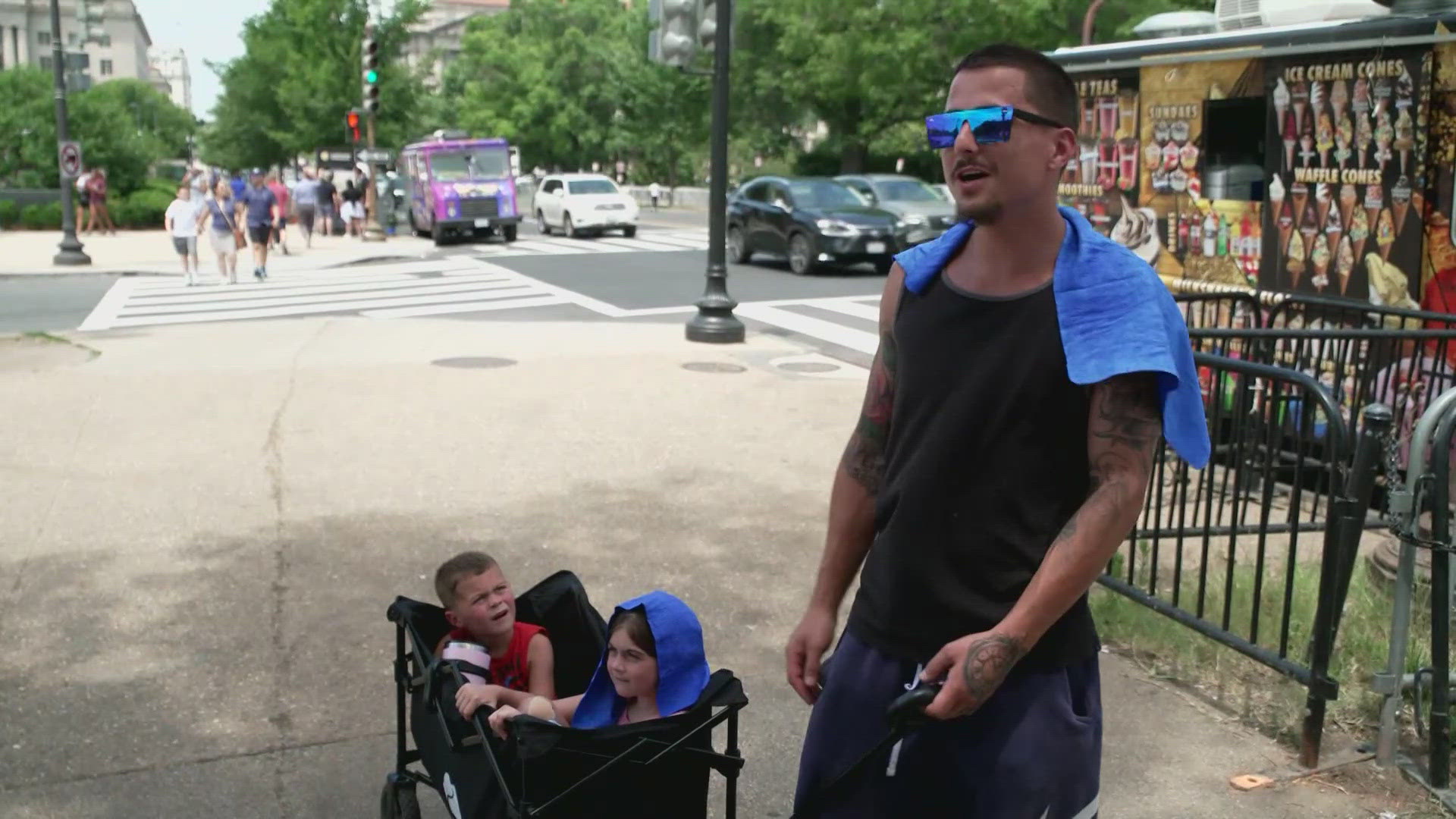WASHINGTON — With D.C.'s heat wave now in its fifth day, residents are eager for relief. However, the streak isn't expected to end just yet.
Meteorologists say the heat streak, which began on June 17, could continue through the middle of next week. Not only would that make the current heat wave one of the longest in recent memory, it would also be highly unusual for the month of June.
Should this heat wave reach a minimum of nine days, it would become D.C.’s longest since a 20-day heat wave from June 26 to July 15, 2020. A “heat wave” is loosely defined as a minimum of three consecutive 90-degree days.
Twice in history, D.C. faced its longest recorded stretches of extreme heat including a 21-day stretch with high temperatures of at least 90 degrees or above from July 29 to August 18, 1988. Temperatures reached 100 degrees twice during this heat wave. A similar 21-day heat wave occurred from July 25 to August 14, 1980, and also saw two days of triple-digit heat.
What makes the current heat wave in the nation’s capital all the more unusual is that it’s occurring entirely during June. Based on climate averages from NOAA, June is not usually as hot as July and August. D.C.'s two longest June heat waves over the last 30 years occurred in 1994 and 2010, respectively. The 14-day stretch from June 13 to June 26, 1994, featured five record highs and one day of triple-digit heat. An 11-day heat wave also occurred from June 19 to June 29, 2010. Two records highs were set during this stretch with one day of triple-digit heat.
The nation's capital has averaged one June day of triple-digit heat roughly every six years over the last 30 years, according to NOAA. However, none has occurred since June 29, 2012. If triple-digit heat does develop this weekend, it would be the first time in June in nearly 12 years and the first time, overall, since August 15, 2016.
READ NEXT:
WATCH NEXT:

